Why Students Learn Faster with Passionfruit
Apr 19, 2025
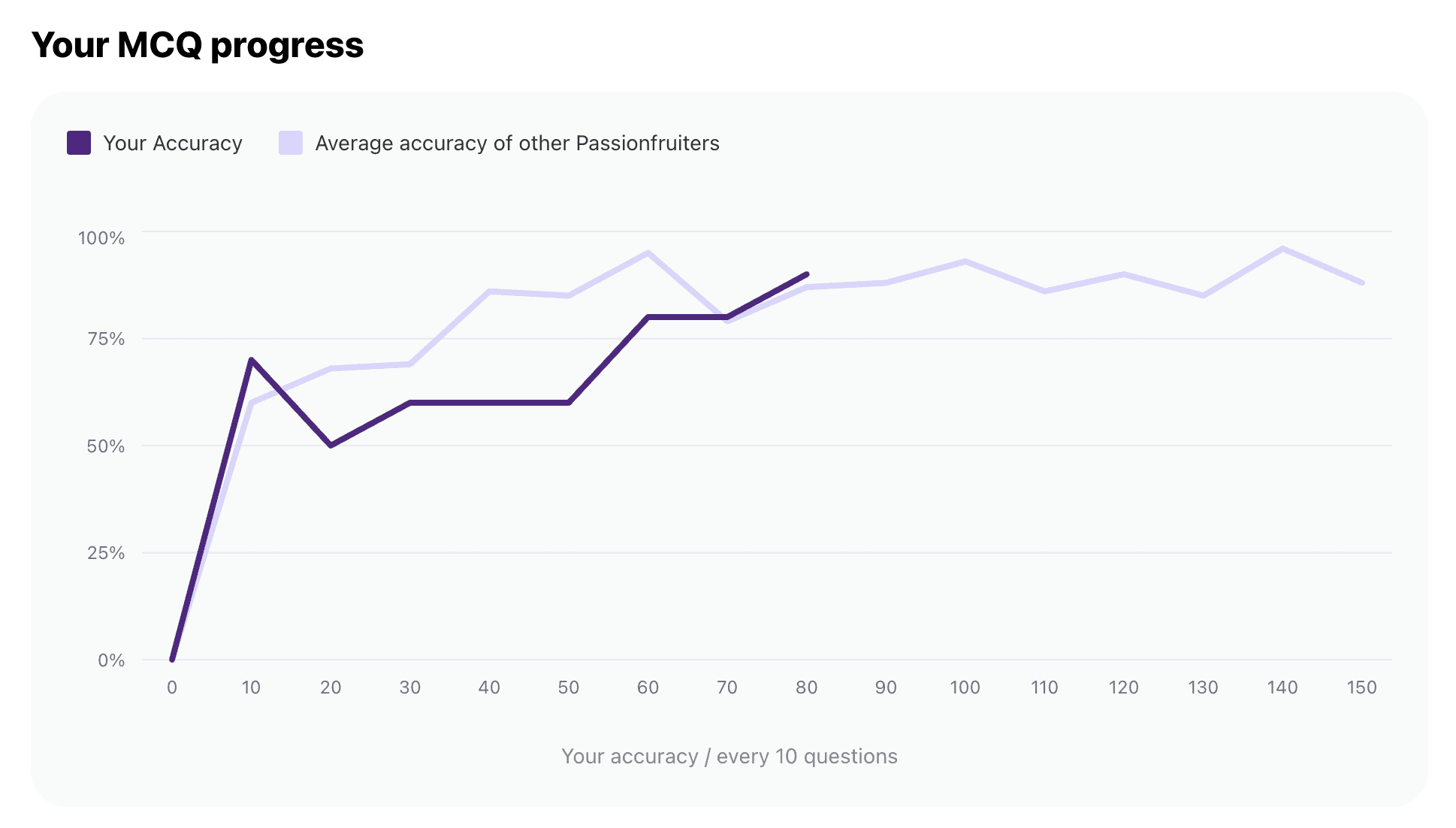
From the beginning, our goal with Passionfruit was to build the most effective and efficient way for students to master AP subjects.
Now, with thousands of students using Passionfruit, both independently and in classrooms, we’re beginning to see its impact on student performance.
We recently analyzed data from every student who completed 20+ multiple-choice questions (MCQs), and compared their accuracy between the first 10 MCQs vs. last 10 MCQs.
We discovered that the average student improved their MCQ accuracy by 60%.
The average accuracy for the first 10 MCQs is 53%. Given the average rate of improvement (60%), the average student is able to achieve 85% accuracy after just a few sessions on Passionfruit.
So what makes Passionfruit so effective?
Our app might seem simple, but every aspect of Passionfruit’s design is backed by research. Here’s what the research shows, and how we’re using it to shape Passionfruit into the most powerful way to study for AP exams.
Students who study with a personal (AI) tutor will outperform 98% of peers.
Bloom's 1984 paper famously demonstrated that the average student who learns with a 1-on-1 tutor performs better than 98% of students educated in a conventional classroom.
Until now, it was impossible to give every student a 1-on-1 learning experience. But with Passionfruit, students learn with our AI tutor, who is available 24/7 to provide step-by-step guidance, in-depth explanations, and instant feedback for any question or concept.

Testing yourself is 50% more effective than reviewing notes.
Roediger & Karpicke (2006) ran an experiment in which they gave students some material to learn. They then split up the two groups into a “study” group and a “testing” group.
The Study group got to review the material over and over again.
The Testing group took multiple tests about the material.
Students from both groups then took a final test 1 week later. When the final test was given, the students in the testing group performed 50% better than the students in the study group (61% vs. 40%).
So if you have a week before the exam, and you’re deciding between reviewing study guides or practicing more questions, do the latter!
Passionfruit has unlimited MCQs so you’ll never run out of practice.
Practicing questions from every unit at random is more effective than practicing one unit at a time.
(Bjork & Bjork, 2011) discussed the research by (Shea & Morgan, 1979) in which they had students learn a set of skills. They split students into two groups and had them learn using two different methods:
Blocking method, in which students practiced one skill at a time. This is like studying one unit at a time.
Interleaved method, in which students practiced multiple skills at once. This is like getting a random set of MCQs and doing them without knowing which unit the question is from.
The researchers then tested the students 10 days later on their ability to perform these skills. They discovered the students who had practiced under interleaved conditions performed far better than did the blocked-practice students, who appeared to have learned “virtually nothing”.
In other words, you can learn new units one at a time, but when preparing for the exam, mix up all the questions and test yourself randomly. Your ability to choose and apply the correct method is just as important as knowing the concepts themselves.
By default, Passionfruit MCQs mixes questions from all units and presents them at random. This way, you can practice identifying and applying concepts, which is the best way to prepare for the real exam.
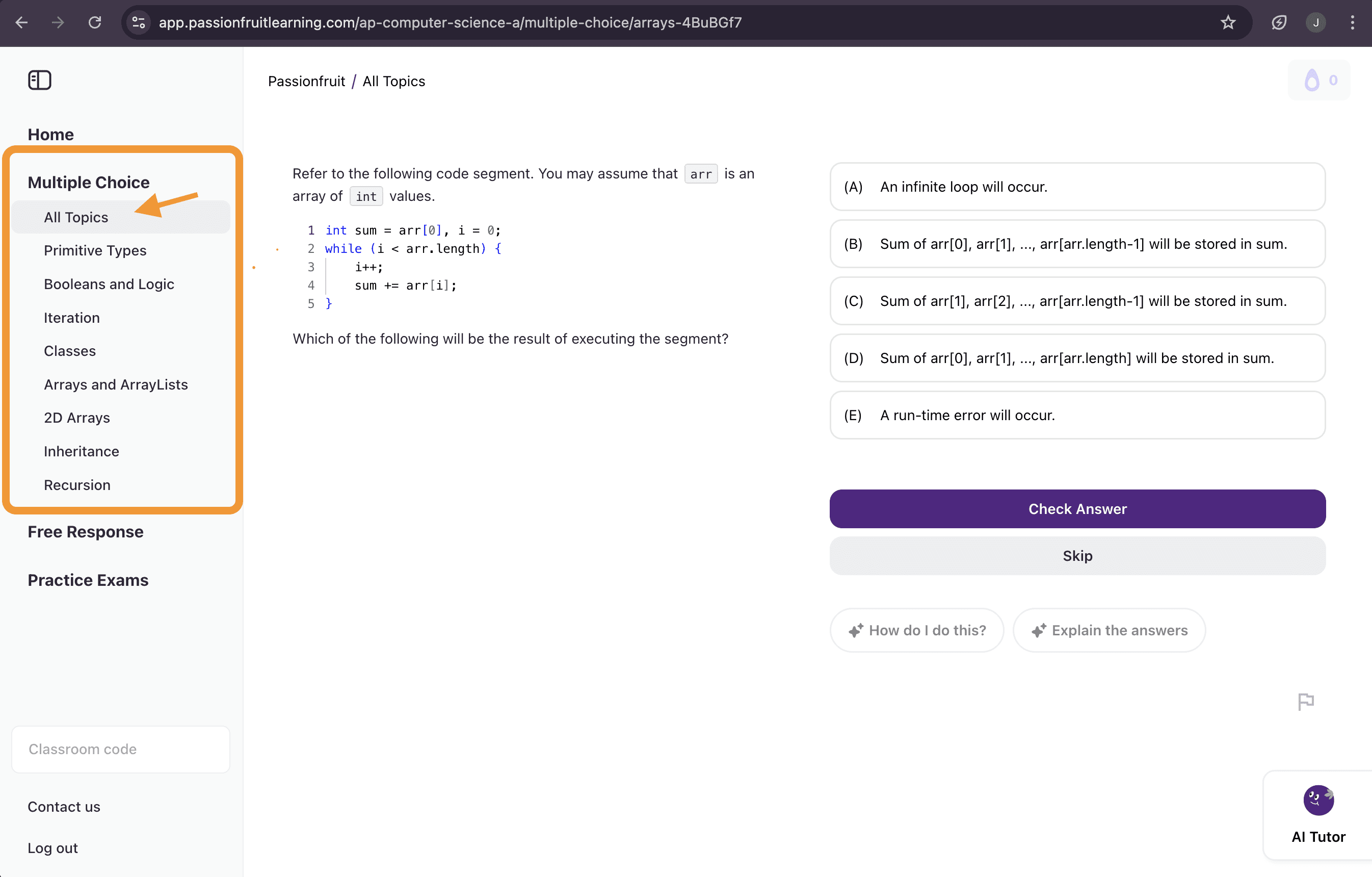
Students who practice with instant, high-quality feedback will outperform 79% of peers.
(Hattie & Timperley, 2007) aggregated many key experiments and determined that when students get instant, high-quality feedback, they perform better than 79% of students.
But note that not all feedback is created equal. The best feedback helps students quickly correct mistakes, and understand why something is right or wrong. It’s also important for the feedback to help students reflect on what strategies they used and identify better ones.
Passionfruit doesn’t just tell you if your answer is correct. Our AI explains why, breaks down your thinking, and helps you improve on the spot. The result is instant growth, fewer repeated mistakes and faster mastery.
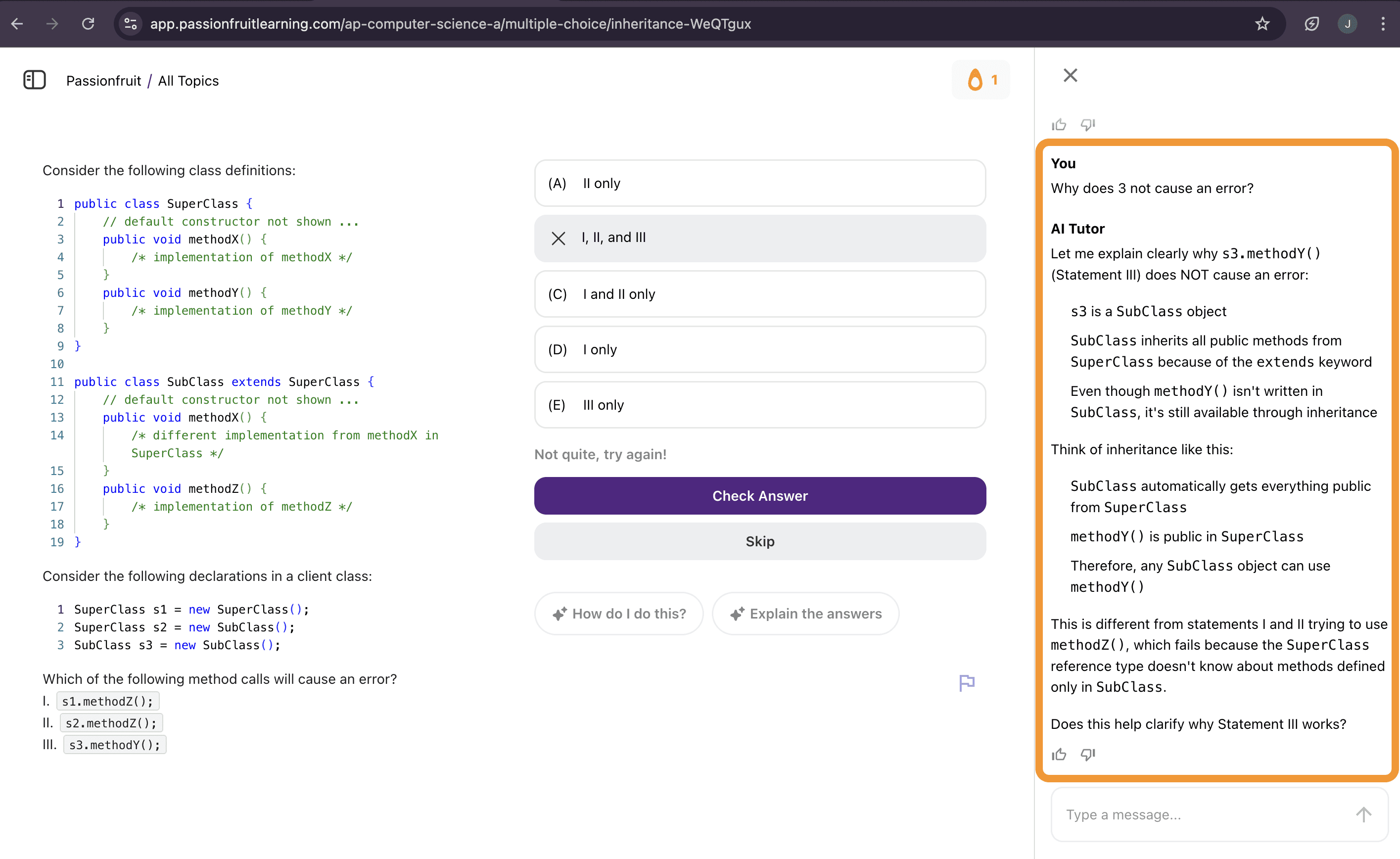
Students who consistently monitor their performance will outperform 85% of peers.
Black & Wiliam (1998) found that students who regularly received diagnostic feedback and adjusted practice improved more than those who didn’t—rising from the 50th percentile to as high as the 85th.
Their review of over 250 empirical studies showed how “formative assessment” is especially impactful for struggling or disadvantaged students, helping close achievement gaps.
That’s why Passionfruit tracks your strengths and weaknesses across every unit, in real time. This way, you’re not wasting time on stuff you already know, and you’re always working on what will help you improve the most.
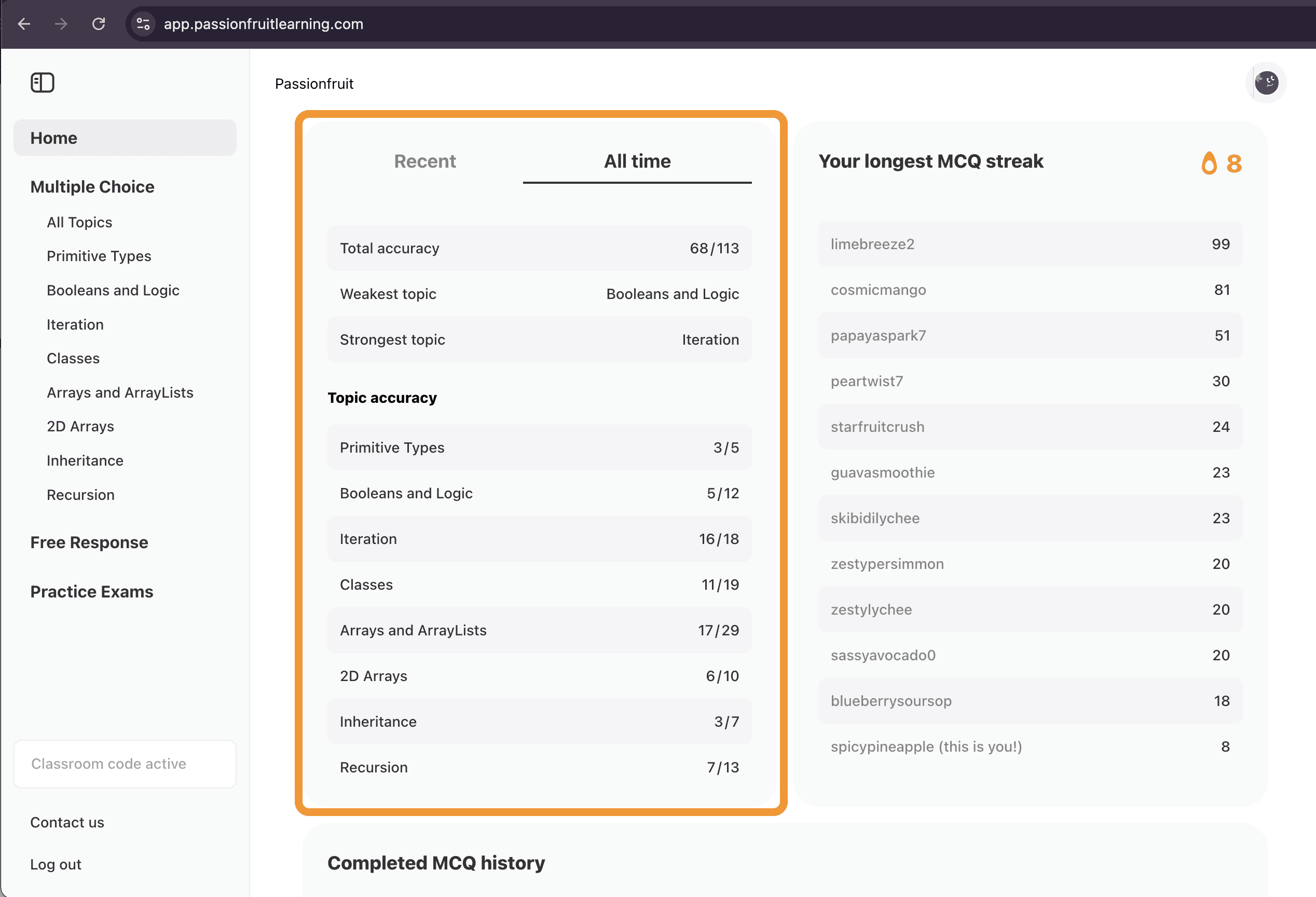
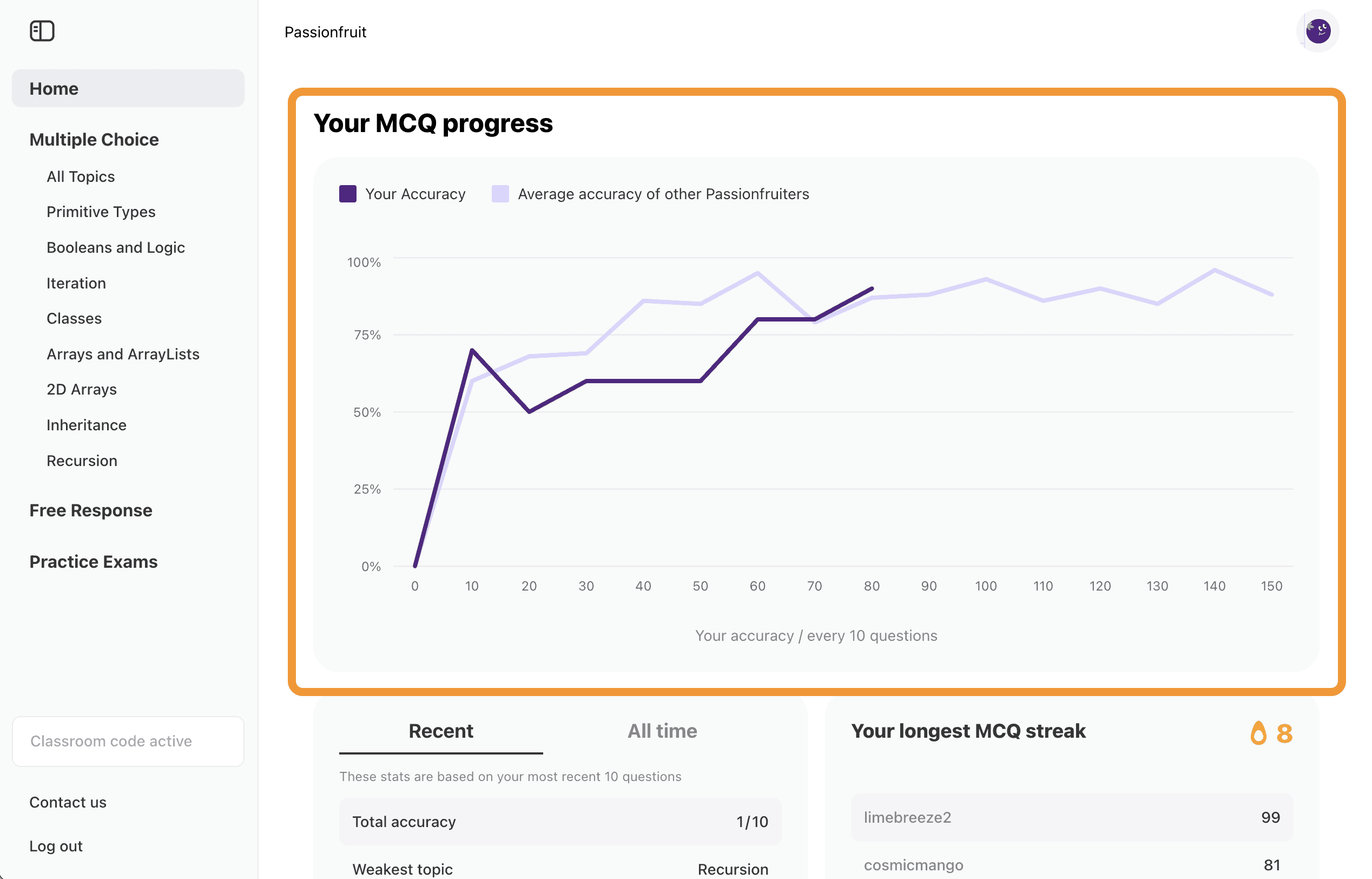
————————————
The best part is we’re not stopping here. We’ll continue to incorporate more research-backed methods to help you ace your exams.
As always, if you have any ideas or feedback, send it our way! Email us at jason@passionfruitlearning.com
Disclaimer: This post provides a high-level summary of key research findings for educational purposes. The studies referenced are complex and nuanced; the interpretations here are simplified and may not capture the full scope, methodology, or limitations of the original work. For a complete understanding, readers are encouraged to consult the original papers.